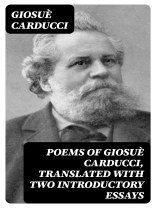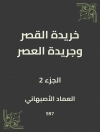In ‘Poems of Giosuè Carducci, Translated with Two Introductory Essays, ‘ readers are invited into the rich tapestry of Italian poetry crafted by the Nobel laureate Giosuè Carducci. The collection embodies Carducci’s distinctive lyrical style, marked by a deep reverence for classical traditions fused with a modern sensibility. His verses echo with passionate themes of love, nature, and nationalism, expertly employing formal structures and rhythmic cadences that reflect his academic grounding in Latin and Greek literature. The introductory essays provide essential context for understanding Carducci’s innovative contributions during the Italian literary revival of the late 19th century, illuminating his responses to the cultural and political upheavals of his time. Giosuè Carducci (1835-1907) was not only a prominent poet but also a fervent critic and educator who played a pivotal role in shaping modern Italian literature. His extensive travels and profound engagement with philosophical ideas, particularly the influence of Romanticism and the classical tradition, informed his poetic vision. His commitment to Italy’s unification and cultural identity resonates throughout his work, making him a significant figure in the national consciousness. This collection is highly recommended for readers interested in exploring the intersection of personal and national identity through poetry. Carducci’s works, beautifully translated, offer a glimpse into the heart of Italian literature, providing both historical insight and aesthetic pleasure. Ideal for poetry enthusiasts and scholars alike, this edition invites readers to not only appreciate Carducci’s mastery but also to engage with the profound ideas that shaped his era.
Tentang Penulis
Giosuè Carducci (1835-1907) was a renowned Italian poet and a significant literary figure in the 19th century. Born in Valdicastello, Tuscany, Carducci grew into a passionate and revolutionary scholar who drew from his country’s history and his personal experiences to craft poignant poetry. His works resonate with the influence of the classic Latin writers, and his commitment to classical forms juxtaposed with his revolutionary ideals sets him apart in the canon of Italian literature. Carducci’s distinguished career in academia, notably at the University of Bologna, was paralleled by a prolific output of poetry and criticism. A distinguished poet, he was also a prominent literary critic and a scholar of Italian literature. His mastery of language and lyricism is showcased in translations such as ‘Poems of Giosuè Carducci, Translated with two introductory essays, ‘ which bring to the fore his vibrant depictions of the Italian landscape, his liberal ideology, and his personal struggles. Heavily influenced by the Risorgimento, the movement for Italian unification, Carducci’s poetry often reflected his patriotic fervor and his belief in progress and science. In 1906, he achieved literary immortality by becoming the first Italian to receive the Nobel Prize in Literature ‘not only in consideration of his deep learning and critical research, but above all as a tribute to the creative energy, freshness of style, and lyrical force which characterize his poetic masterpieces.’












